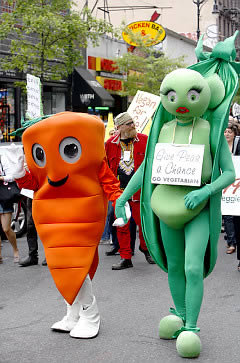According to groundbreaking research from Oxford University, individuals who consume meat may be less likely to experience brain shrinkage compared to those who adhere strictly to vegetarian diets. While this claim has stirred debates, it raises important questions about the role of nutrition, particularly Vitamin B12, in maintaining brain health and cognitive function.
The Oxford Study: What Did They Discover?
The research conducted by scientists at Oxford University involved a group of 107 participants aged between 61 and 87. These individuals underwent memory tests, physical examinations, and brain scans over an extended period. Upon retesting, researchers discovered that participants who abstained from consuming meat showed a greater degree of brain shrinkage than their meat-eating counterparts. The primary culprit identified in this study was a deficiency in Vitamin B12, a nutrient predominantly found in animal-derived foods such as meat, fish, and eggs. The findings suggested a direct link between B12 levels and brain mass, sparking concerns about the potential long-term cognitive effects of vegetarian and vegan diets.
The Role of Vitamin B12 in Brain Health
Vitamin B12 plays a crucial role in maintaining the nervous system, supporting the production of DNA and red blood cells, and fostering overall cognitive function. Deficiencies in this essential nutrient can lead to a range of neurological issues, including memory loss, confusion, and even dementia. One of the study's key revelations was the connection between B12 deficiency and brain atrophy, or the loss of neurons and brain volume. This condition has also been linked to Alzheimer's disease and other forms of cognitive decline, highlighting the importance of adequate B12 levels for long-term brain health.
Vegetarian and Vegan Diets: The Nutritional Gap
For vegetarians and vegans, obtaining sufficient Vitamin B12 can be challenging, as the nutrient is primarily found in animal-based products. While fortified brain foods and supplements can help bridge this gap, many individuals may not realize they are deficient until symptoms appear.
Symptoms of B12 deficiency include fatigue, weakness, tingling sensations, and cognitive impairments. Over time, a prolonged lack of this nutrient can lead to irreversible neurological damage, making it essential for those on plant-based diets to monitor their B12 intake closely.
Can Vegetarians and Vegans Prevent Brain Shrinkage?
The good news is that vegetarians and vegans do not need to abandon their dietary choices to maintain brain health. There are several strategies to ensure adequate B12 intake:
Supplements: Vitamin B12 supplements are widely available and can provide a reliable source of this essential nutrient. It is important to follow recommended dosages and consult a healthcare professional if necessary.
Fortified Foods: Many plant-based products, such as cereals, plant milks, and nutritional yeast, are fortified with Vitamin B12. Including these in your diet can help maintain adequate levels.
Regular Testing: Periodic blood tests can help identify B12 deficiencies early, allowing for timely intervention and supplementation.
The Bigger Picture: Nutritional Balance and Cognitive Health
While the Oxford study highlights the risks of Vitamin B12 deficiency, it is essential to consider overall nutritional balance. A well-rounded diet that includes a variety of nutrients is key to maintaining brain health and preventing cognitive decline. For vegetarians and vegans, this means paying attention not only to B12 but also to other vital nutrients such as omega-3 fatty acids, iron, and zinc.
Omega-3 fatty acids, for example, are crucial for brain health and can be found in plant-based sources like flaxseeds, chia seeds, and walnuts. Similarly, iron and zinc are essential for cognitive function and can be obtained from legumes, nuts, and fortified products.
Addressing the Criticism
Some critics argue that the Oxford study oversimplifies the relationship between diet and brain health. They point out that factors such as genetics, lifestyle, and overall diet quality also play significant roles in cognitive function. While the study underscores the importance of B12, it is not a condemnation of vegetarian or vegan diets.
Furthermore, the portrayal of vegetarians as "small-minded" in jest should not overshadow the serious implications of the study. Nutrition is a deeply personal choice, and finding ways to optimize health within one's dietary preferences is paramount.
A Call for Awareness if you are vegetarian or vegan!
Whether you are a meat-eater, vegetarian, or vegan, the takeaway from the Oxford study is clear: awareness of your nutritional needs is crucial. Vitamin B12 is an essential nutrient that supports brain health and overall well-being, and ensuring adequate intake should be a priority for everyone.
For those on plant-based diets, proactive measures such as supplementation and regular health check-ups can mitigate the risks associated with B12 deficiency. By prioritizing nutritional balance, individuals can enjoy the benefits of their chosen diets without compromising their long-term health.
Ultimately, the path to cognitive vitality lies in informed choices, not divisive dietary debates. Whether through careful meal planning or responsible supplementation, maintaining brain health is within everyone's reach—regardless of dietary preference.












